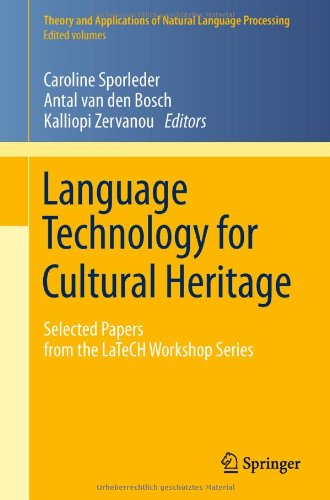

Most ebook files are in PDF format, so you can easily read them using various software such as Foxit Reader or directly on the Google Chrome browser.
Some ebook files are released by publishers in other formats such as .awz, .mobi, .epub, .fb2, etc. You may need to install specific software to read these formats on mobile/PC, such as Calibre.
Please read the tutorial at this link: https://ebookbell.com/faq
We offer FREE conversion to the popular formats you request; however, this may take some time. Therefore, right after payment, please email us, and we will try to provide the service as quickly as possible.
For some exceptional file formats or broken links (if any), please refrain from opening any disputes. Instead, email us first, and we will try to assist within a maximum of 6 hours.
EbookBell Team

5.0
18 reviewsThe digital age has had a profound effect on our cultural heritage and the academic research that studies it. Staggering amounts of objects, many of them of a textual nature, are being digitised to make them more readily accessible to both experts and laypersons. Besides a vast potential for more effective and efficient preservation, management, and presentation, digitisation offers opportunities to work with cultural heritage data in ways that were never feasible or even imagined.
To explore and exploit these possibilities, an interdisciplinary approach is needed, bringing together experts from cultural heritage, the social sciences and humanities on the one hand, and information technology on the other. Due to a prevalence of textual data in these domains, language technology has a crucial role to play in this endeavour. Language technology can break through the "Google barrier" by offering the potential to analyse texts at advanced levels, extracting information and knowledge at the level of the humanities or social sciences researcher, who wants to know about the who, what, where, and when, but also the how and the why. At the same time cultural heritage data poses considerable challenges for existing language technology: technology aimed at "generic" language has to face such disparate problems as historical language variation, OCR digitisation errors, and near-extinct academic expertise.
This book is primarily intended for researchers in information technology and language processing who would like to receive a state-of-the-art overview of the whole breadth of the new and vibrant field of language technology for cultural heritage and its associated academic research in the humanities and social sciences. Researchers working in the target domains of cultural heritage, the social sciences and humanities will also find this book useful, as it provides an overview of how language technology can help them with their information needs. The book covers applications ranging from pre-processing and data cleaning, to the adaptation and compilation of linguistic resources, to personalisation, narrative analysis, visualisation and retrieval.